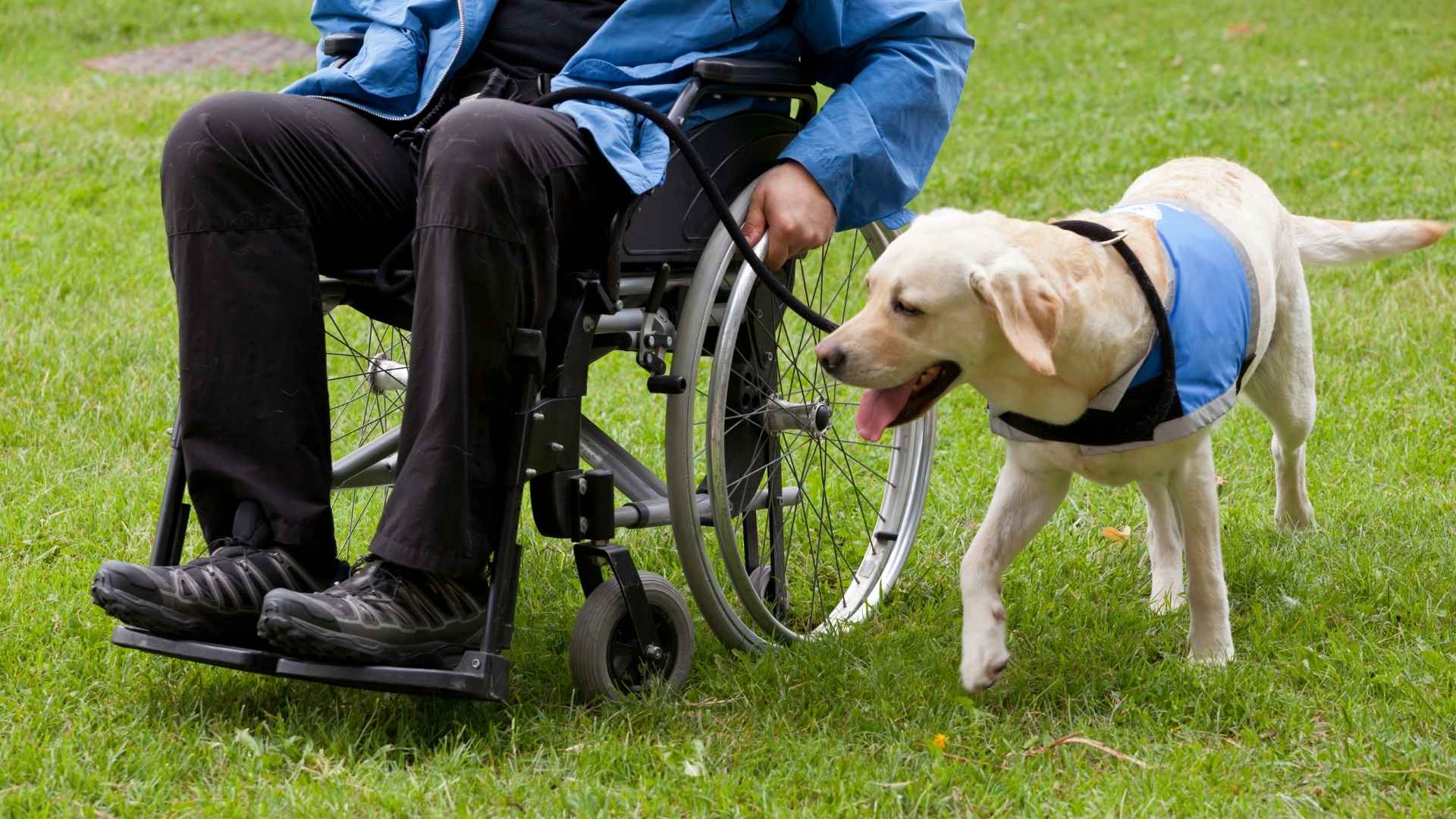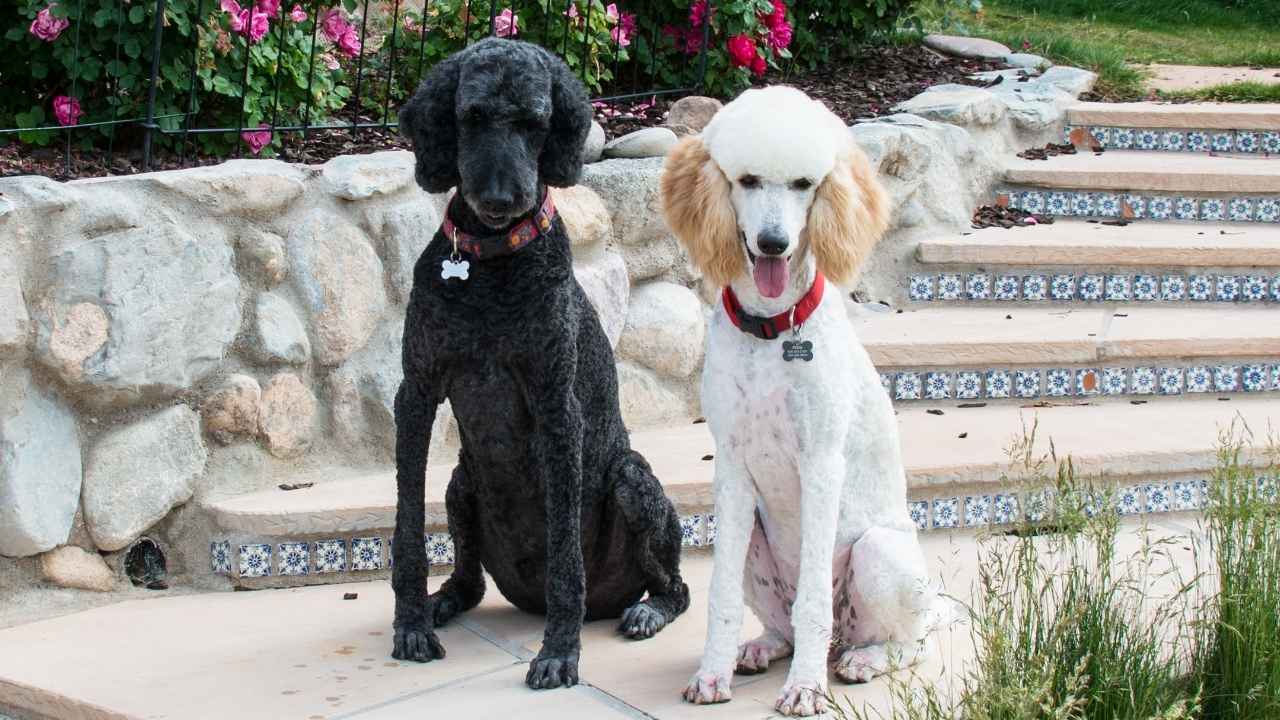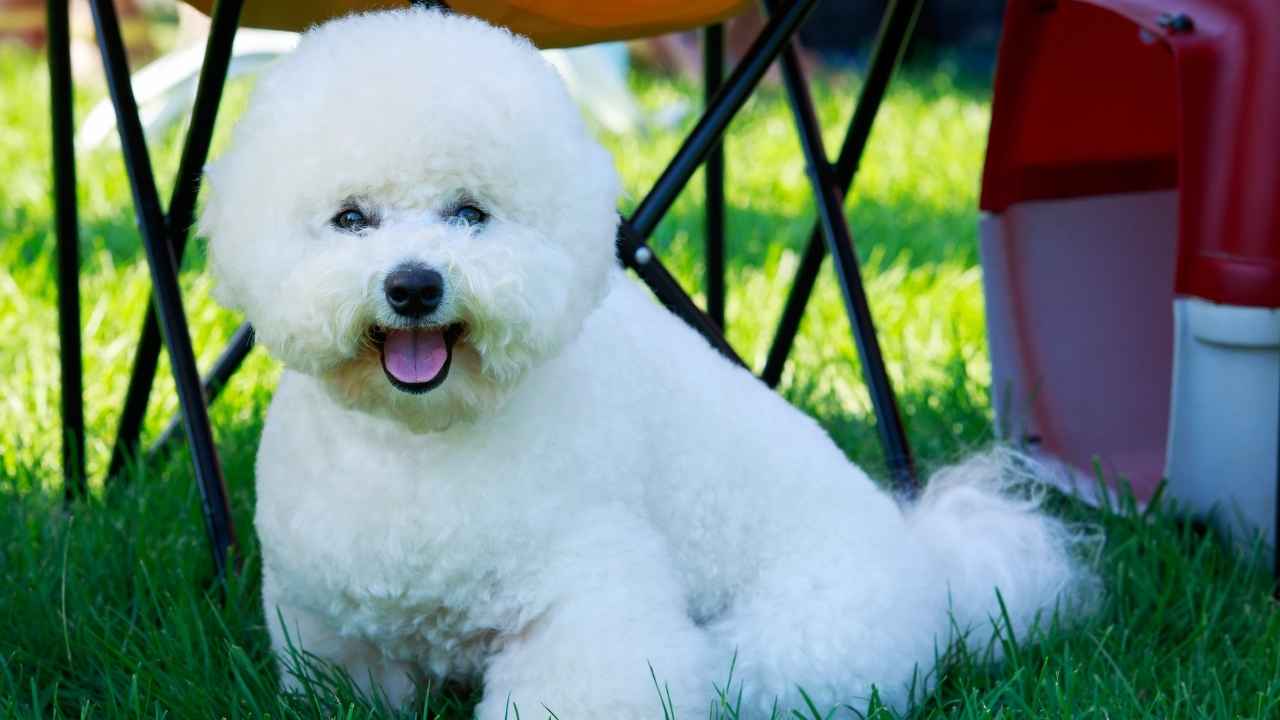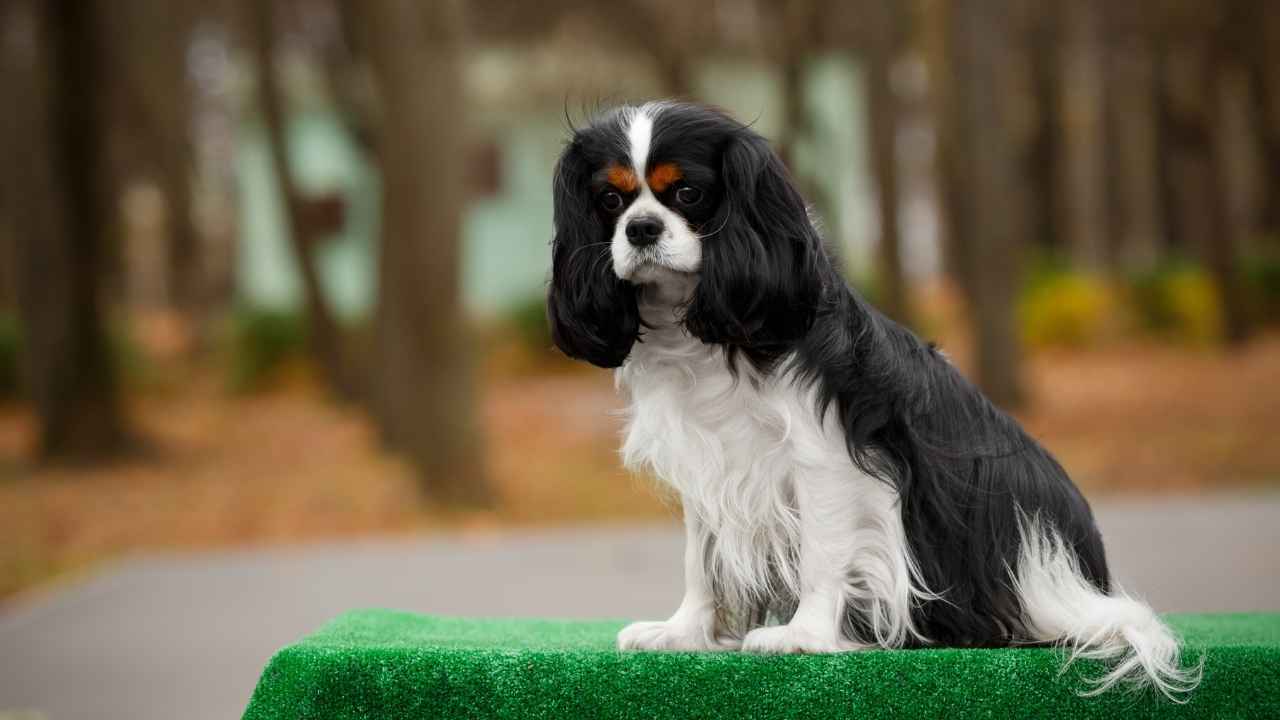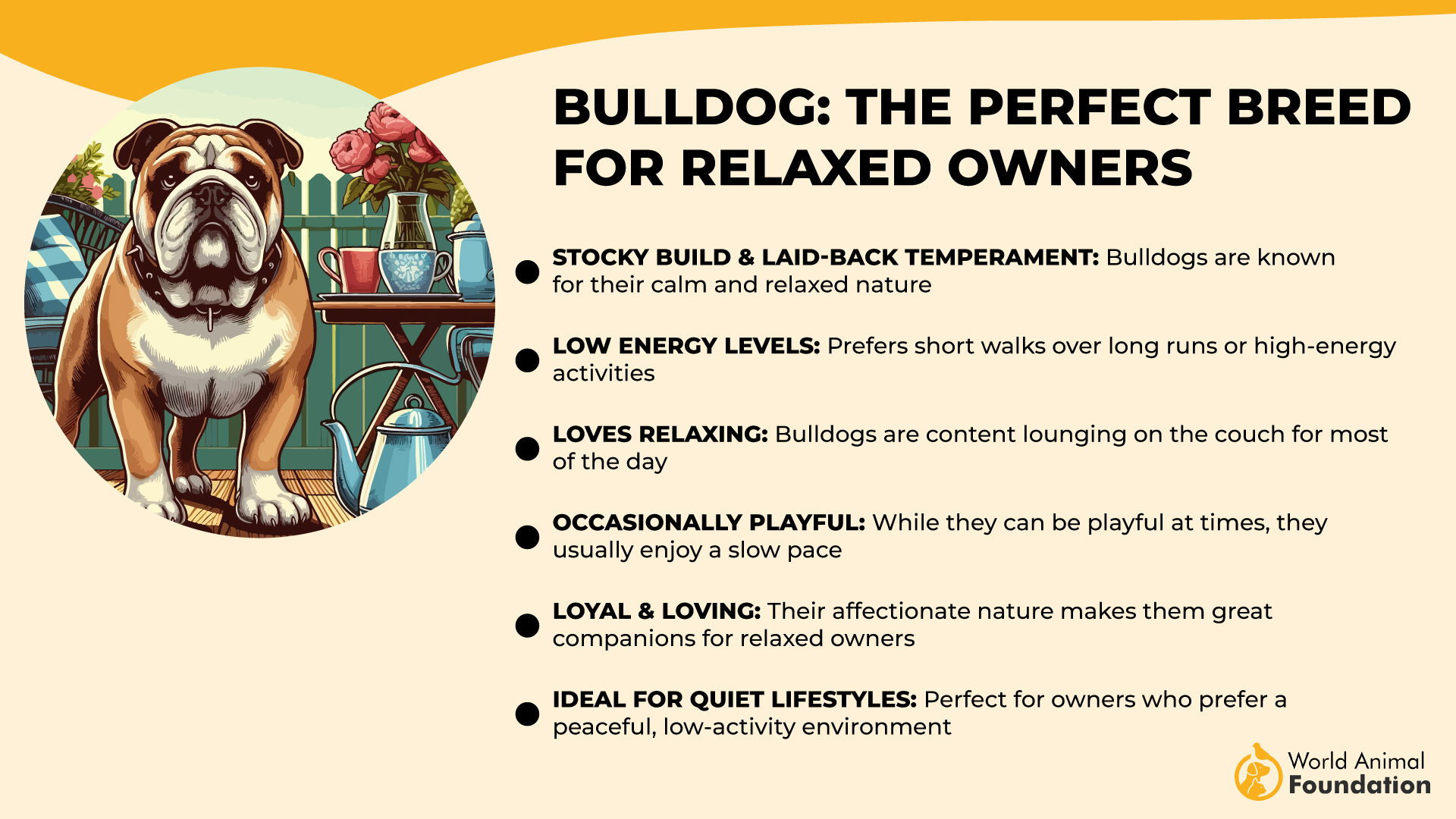For individuals with disabilities, small dog breeds can offer both companionship and invaluable assistance, enhancing day-to-day living. These compact canine companions not only provide emotional support but can also be trained to perform specific tasks tailored to the unique needs of their owners. From alerting deaf individuals to sounds, to providing stability for those with mobility challenges, these small, intelligent breeds are more than just pets—they are partners in fostering independence and improving quality of life. Discover seven exceptional small dog breeds that combine affectionate companionship with versatile assistance for people with disabilities.
For people with disabilities, a dog can be much more than just a pet – they can be a lifeline. Small dog breeds, in particular, are often ideal for individuals needing emotional support, assistance with daily tasks, or simply a loyal companion.
They are easier to handle, especially for those with physical disabilities, and are equally adept at providing comfort for emotional or psychological needs. Whether you need a therapy dog, an emotional support animal, or an assistance dog, small dogs can offer both practical help and unconditional love.
In this guide, we’ll explore seven of the best small dog breeds for people with disabilities. Each breed offers unique qualities and characteristics that make them ideal companions for individuals with various needs. From the affectionate Poodle to the protective Yorkshire Terrier, these dogs can become invaluable parts of daily life, supporting their owners in ways that go beyond companionship.
Small Dog Breeds for People with Disabilities
1. Poodle
Poodles are widely regarded as one of the most intelligent dog breeds, and this makes them ideal for those in need of service dogs. Their easy-to-train nature and hypoallergenic coats make them well-suited for people with physical disabilities, allergies, and other specific needs. Poodles are often used as emotional support animals, providing comfort to individuals suffering from anxiety, depression, or PTSD. With their keen intellect, they can also be trained to perform complex tasks, such as retrieving objects, providing balance support, or alerting to medical issues.
Originally bred as hunting dogs, Poodles have excellent retrieving instincts and can be trained to help with mobility assistance or even guide people with visual impairments. Their calm demeanor and affectionate nature make them fantastic therapy dogs, often used in hospitals, nursing homes, or to support individuals with psychiatric service needs. Their small to medium size also ensures they are manageable for people living in apartments or smaller homes, making them versatile and adaptable companions.
Poodles form strong bonds with their owners, offering both physical and emotional support. They are social dogs that thrive on human interaction, making them a wonderful fit for families or individuals looking for a loyal, highly trained companion. Whether as a therapy dog or a service animal, Poodles are sure to make a significant impact in the life of anyone who needs assistance or emotional support.
Key Benefits
|
Highly Trainable |
Quick to learn tasks, making them ideal for service roles. |
|
Hypoallergenic Coat |
Great for individuals with allergies. |
|
Versatile Tasks |
Capable of performing mobility, medical alert, and emotional support tasks. |
|
Affectionate and Loyal |
Forms strong bonds with owners, providing emotional support. |
|
Suitable for Small Spaces |
Adaptable to apartment living and small homes. |
2. Dachshund
Dachshunds, affectionately known as “wiener dogs,” may be small in size but are big in personality. These little dogs are known for their courageous and independent nature, but they are also incredibly affectionate, making them ideal emotional support animals. Due to their compact size and ease of handling, Dachshunds are well-suited for people with physical disabilities, especially those with mobility challenges who may find larger dogs difficult to manage.
While Dachshunds are not typically used as service dogs in the traditional sense, they are excellent companions for those needing emotional support or a comforting presence. Their small size allows them to assist with light physical tasks, such as alerting their owners to sounds or fetching small objects. Dachshunds’ loyal and playful personalities make them wonderful companions for individuals who may experience loneliness or depression, offering much-needed comfort and companionship.
Dachshunds also form strong bonds with their owners, making them particularly beneficial for people with emotional challenges or those needing constant companionship. As per HillsPet, despite their short legs and small stature, they are known for their brave nature and willingness to protect their family. With proper training, a Dachshund can become a reliable emotional support animal, providing warmth and unconditional love to those in need.
Key Benefits
|
Affectionate |
Known for their loving nature and strong bonds with owners. |
|
Compact Size |
Easy to manage, perfect for individuals with mobility challenges. |
|
Comforting Presence |
Provides emotional support with a calming, loyal demeanor. |
|
Alert and Protective |
Despite their size, they are known for their protective instincts. |
|
Adaptable |
Suited for apartment living or smaller spaces. |
3. Pug
Pugs are one of the most popular small breeds, known for their friendly and loving personalities. Their calm demeanor and affectionate nature make them ideal companions for people with disabilities, particularly those in need of emotional support. Pugs are especially well-suited for individuals with psychiatric conditions, such as anxiety, depression, or PTSD, due to their soothing presence and ability to form deep connections with their owners.
Though Pugs are often playful and energetic, they are also known for being excellent lap dogs and enjoy spending time cuddling with their owners. Their small size and adaptable nature make them perfect for people living in smaller spaces, such as apartments. Pugs require minimal exercise, which can be beneficial for individuals with physical challenges who may not be able to take long walks or engage in strenuous activities.
Pugs’ loving personalities and devotion to their owners make them great family dogs, and their playful yet calm nature ensures they are always a welcome presence. These dogs are great for children and the elderly alike, offering companionship and comfort. Whether as an emotional support animal or a family pet, Pugs can provide the emotional support and joy that many people with disabilities need.
Key Benefits
|
Calm and Affectionate |
Pugs are incredibly loving and soothing, offering emotional support. |
|
Low Exercise Needs |
Ideal for people with limited mobility or energy. |
|
Adaptable |
Perfect for apartments and small spaces. |
|
Great with Families |
Their playful yet gentle nature makes them great with children. |
|
Good for Emotional Support |
Provides constant comfort and companionship. |
4. Bichon Frise
Bichon Frises are small, cheerful dogs known for their friendly personalities and affectionate nature. They are often used as therapy dogs due to their gentle demeanor and their ability to provide comfort and emotional support to people with disabilities. Bichon Frises are also well-suited as emotional support animals, providing companionship and relief to individuals experiencing anxiety, depression, or stress.
Their hypoallergenic coats make Bichon Frises ideal for individuals with allergies, ensuring they are both a comforting and safe option for people with sensitivities. Their small size and loving nature make them great companions for individuals with physical disabilities, as they are easy to manage and provide a soothing presence. Bichon Frises are intelligent dogs that are easy to train, making them suitable for people who need a service dog to perform specific tasks, such as alerting to sounds or fetching items.
Bichon Frises are known for their ability to bond with their owners and are particularly good at brightening the mood of those around them. According to PetMD, their friendly and affectionate nature makes them wonderful family dogs, and their playful personalities ensure they bring joy to everyone in the household. As both emotional support animals and service dogs, Bichon Frises offer invaluable assistance to those in need.
Key Benefits
|
Hypoallergenic |
Great for people with allergies due to their minimal shedding. |
|
Cheerful and Playful |
Their happy nature lifts spirits, providing emotional comfort. |
|
Easy to Train |
Quick learners, capable of being trained for service roles. |
|
Perfect Size for Small Spaces |
Great for apartment dwellers or people with limited space. |
|
Companion-Oriented |
Bonds strongly with owners, offering emotional support. |
5. Cavalier King Charles Spaniel
The Cavalier King Charles Spaniel is a gentle, affectionate, and highly trainable breed that excels as both a family companion and a service dog. As per Royal Canin, these dogs are particularly well-suited for individuals with emotional or psychological disabilities, as their calm and loving nature helps provide comfort and companionship. Cavalier King Charles Spaniels are often used as therapy dogs, visiting hospitals, nursing homes, and other care facilities to offer emotional support to those in need.
Their small size and friendly disposition make them excellent companions for people with mobility challenges or physical disabilities. They can be trained to perform a variety of tasks, from retrieving objects to alerting to sounds, making them versatile service animals. The breed’s intelligence and eagerness to please ensure they can be trained to assist with both physical and emotional tasks, offering relief and comfort to those who need it most.
The Cavalier King Charles Spaniel’s ability to form strong bonds with their owners makes them particularly well-suited for people seeking a loyal companion. Their gentle demeanor and affectionate nature make them a great fit for families with children or elderly individuals. Whether as a service dog, therapy dog, or emotional support animal, these dogs are sure to make a positive impact on the lives of those with disabilities.
Key Benefits
|
Gentle and Calm |
Perfect for those who need a soothing, low-stress companion. |
|
Highly Trainable |
Can be taught to perform light service tasks or alert to medical changes. |
|
Ideal for Emotional Support |
Known for their loving nature and excellent companionship. |
|
Great with Families and Kids |
Their friendly demeanor makes them perfect family pets. |
|
Small Size |
Adaptable to smaller living spaces like apartments. |
6. Yorkshire Terrier
The Yorkshire Terrier, or Yorkie, is a small dog with a big personality. Despite their tiny size, Yorkies are energetic, confident, and highly loyal to their owners. They are often chosen as emotional support animals due to their affectionate and loving nature. Yorkies can offer comfort to individuals suffering from anxiety, depression, or other mental health challenges, as they provide a consistent source of companionship and joy.
Though they may be small, Yorkies are known for their intelligence and trainability. They can be taught to perform a variety of tasks, including alerting to sounds or fetching small items. Their strong bonds with their owners make them excellent companions, and they are particularly suited for individuals with emotional needs or those who experience physical challenges. Despite their spunky personalities, Yorkies are affectionate and enjoy snuggling with their owners, making them excellent lap dogs for those seeking comfort.
Yorkshire Terriers are particularly well-suited for people living in smaller spaces, as their compact size makes them easy to manage. Their playful nature and loving disposition ensure they are always a welcome presence in the home. As both therapy dogs and emotional support animals, Yorkies offer emotional and physical support, helping their owners navigate daily tasks with confidence and comfort.
Key Benefits
|
Intelligent and Quick to Train |
Able to learn a variety of tasks and commands. |
|
Affectionate |
Very loyal and loving, making them ideal emotional support animals. |
|
Compact Size |
Perfect for people with limited living space or mobility issues. |
|
Energetic and Playful |
Helps provide stimulation and joy for owners. |
|
Good for Small Tasks |
Capable of assisting with light tasks such as retrieving items. |
7. French Bulldog
French Bulldogs are compact, sturdy dogs with a calm, affectionate demeanor that makes them excellent companions for people with disabilities. These dogs are particularly well-suited for individuals seeking emotional support animals, as their loving and loyal nature helps provide comfort and companionship. Despite their strong personalities, French Bulldogs are known for their relaxed temperament, making them ideal pets for people with anxiety, depression, or other psychiatric conditions.
Their small size and calm nature make French Bulldogs a great option for individuals with physical disabilities or mobility challenges, as they are easy to manage and adapt well to small spaces. While they may not be as active as some other breeds, their friendly and loving disposition ensures they are always a welcome presence. French Bulldogs can also provide emotional support, helping their owners feel secure and at ease in their everyday lives.
French Bulldogs are highly adaptable, making them suitable for a variety of living situations, from apartments to houses with limited space. Their affectionate nature ensures they form strong bonds with their owners, providing both companionship and emotional relief. As both therapy dogs and emotional support animals, French Bulldogs offer invaluable support to individuals with disabilities, helping them live more comfortably and confidently.
Key Benefits
|
Calm and Relaxed Temperament |
Ideal for people needing a soothing, low-stress companion. |
|
Affectionate and Loyal |
Forms strong bonds with owners, providing emotional support. |
|
Adaptable |
Perfect for apartment living or small homes. |
|
Good for Emotional Support |
Offers consistent companionship, especially for people with anxiety or depression. |
|
Protective Nature |
Despite their small size, they can act as a protective companion. |
Conclusion
Small dog breeds offer invaluable support for people with disabilities. Whether they serve as service dogs, therapy dogs, or emotional support animals, these dogs are more than just pets – they are companions who bring comfort, assistance, and emotional relief. Much like larger breeds such as the Bernese Mountain Dog or Golden Retrievers, which are known for their role as psychiatric service dogs or medical alert dogs, smaller dogs can also make a significant difference in their owner’s life.
While big dogs like German Shepherds and Guide Dogs are often chosen for complex tasks, smaller dogs still excel in performing essential duties, from alerting to sounds to providing mobility assistance, all while maintaining their gentle demeanor and affectionate nature.
The key to the success of these small breeds is their ability to form strong bonds with their owners, offering emotional support and alleviating stress or anxiety. Their easy-to-train personalities and adaptability make them an excellent choice for those in need of both practical and emotional assistance.
Whether you need a comforting companion or a reliable service animal, small dogs provide the same level of dedication and love as their larger counterparts, proving that a loving, loyal companion can come in any size. With the right training and care, these dogs become an integral part of an individual’s support system, enhancing their well-being and enriching their daily lives.
When considering a companion for individuals with disabilities, small dog breeds offer numerous advantages due to their manageable size and often adaptable nature. Breeds like the Cavalier King Charles Spaniel, French Bulldog, and Pomeranian provide not only companionship but also emotional support and motivation for daily activities. Their typically gentle disposition and intelligence make them suitable for specialized training tailored to assist their owners’ specific needs. By choosing a small dog as a loyal partner, individuals with disabilities can experience enhanced independence and quality of life, underscoring the profound impact that a well-matched canine friend can have on personal well-being.

